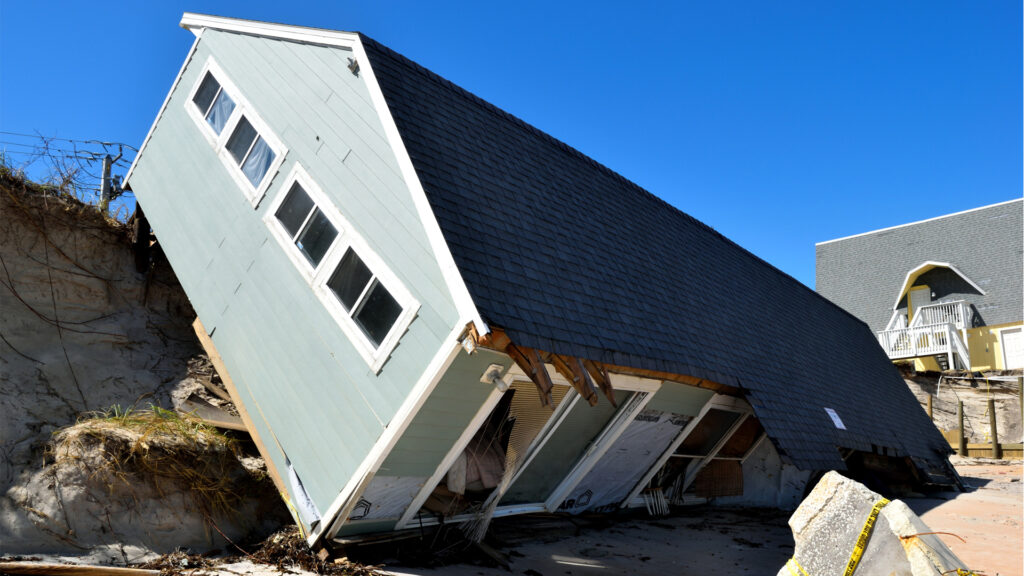By Cara Woods Serra, Tampa Bay Regional Planning Council
The Tampa Bay region has seen its share of natural disasters and high heat days, but in more recent years, and especially in the wake of Hurricane Irma, local elected officials have growing concerns about rising seas, extreme heat and strong tropical storms. These elected officials knew, however, that the way forward was not to go it alone. After all, water does not respect jurisdictional boundaries. Through consensus building and stakeholder engagement, the Tampa Bay Regional Resiliency Coalition has proved that progress can be made on advancing resiliency in our region.

Largely modeled after the Southeast Climate Compact, the first regional climate collaborative in the state, the coalition was formed in 2018 as an initiative of the Tampa Bay Regional Planning Council. The planning council has been a leader in resiliency in Tampa Bay for more than 10 years, but the formation of the coalition represented a shift from supporting local projects and programs to facilitating collaborative action. Today the coalition has 33 member governments including cities and counties outside the regional planning council’s service area.
While the coalition was the second such effort in the state, five other resiliency-focused collaboratives, compacts or coalitions have also formed. Regional collaboration encourages stronger local leadership and enhanced local capacity. The presence of a coalition allows local leaders to point to collaboratively developed best practices when advancing new programming. The best example of this is the Regional Resiliency Action Plan. The action plan was developed over two years through extensive stakeholder engagement and consensus building. It is a road map for regional resiliency through collaborative action and local implementation. While the action plan is not prescriptive for local governments, it is a menu of best practices that local governments can reference.
The action plan, which was adopted in 2022, encourages regional actions including the creation of a regional greenhouse gas inventory. With funding from the U.S. Environmental Protection Agency, a preliminary inventory was completed in March of 2024, with a more detailed inventory to come in 2026. The action plan also encourages the adoption of consistent regulations to combat sea level rise. The Resilient Shoreline Model Ordinance, also adopted in 2022, recommends a 5-foot minimum height for tidal flood barriers such as seawalls, living shorelines and hybrid shorelines. While jurisdictions are not required to adopt these recommendations, the research and consensus building that went into development makes the case for adoption a strong one.

As further evidence that collaboration is key to advancing resiliency for Tampa Bay, the regional planning council recently submitted a grant application for $199,999,999 to the EPA, an application made possible only through the existing relationships fostered by the coalition. The EPA encouraged applications from coalitions over individual applications. The regional planning council volunteered to lead the proposal and partnered with coalition member Sarasota County to expand the reach of the proposal to cover the Tampa-St. Petersburg-Clearwater and the North Port-Sarasota-Bradenton metro areas. Local government leaders from two other metro areas also joined in the application. With the addition of Orlando-Kissimmee-Sanford and Jacksonville, the proposal could impact 40% of Florida’s population, or 8.6 million people.
We hope that this proposal will be the first of many joint applications for funding. We also hope to continue to leverage opportunities for consistent regulations, analysis and multijurisdictional projects. Over the past five years, the regional planning council’s Regional Resiliency Coalition has shown that there is a path forward by working together.
Cara Woods Serra is director of resiliency for the Tampa Bay Regional Planning Council. In that role, she supports the Regional Resiliency Coalition, hazard mitigation planning and resiliency policy. This opinion piece was originally published by the Tampa Bay Times, which is a media partner of The Invading Sea.
If you are interested in submitting an opinion piece to The Invading Sea, email Editor Nathan Crabbe at ncrabbe@fau.edu. Sign up for The Invading Sea newsletter by visiting here.



